anxiety
Latest
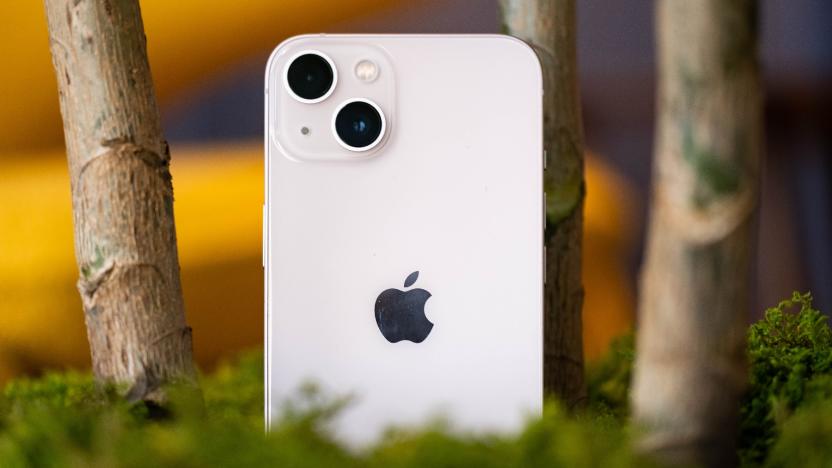
Apple is reportedly working on mental health monitoring using iPhone data
Sensors and algorithms could help detect depression, anxiety and cognitive decline.
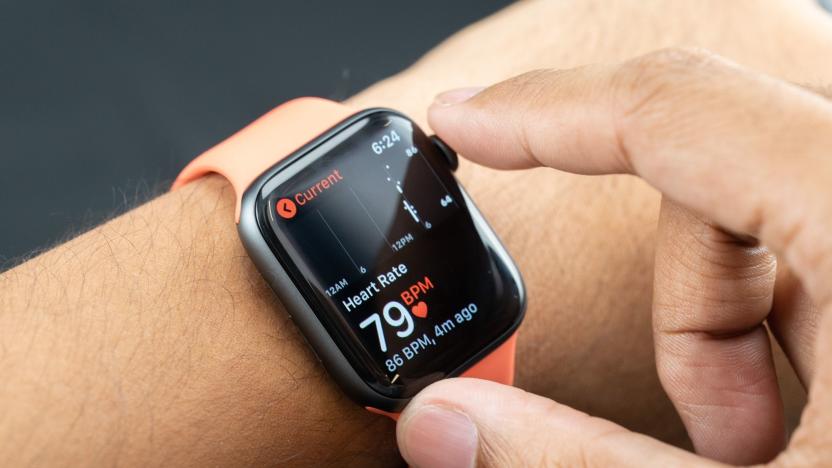
Apple sponsors a three-year UCLA study on depression and anxiety
Apple's latest research project will see the company sponsor a study on depression from UCLA.

App tracks mental health by studying your phone usage
Researchers have built a mobile app that gauges your mental health based on your phone usage.

Google put an anxiety self-assessment in search
With help from the National Alliance on Mental Illness, Google has added a new Search tool to help Americans find out if they need help for their anxiety.
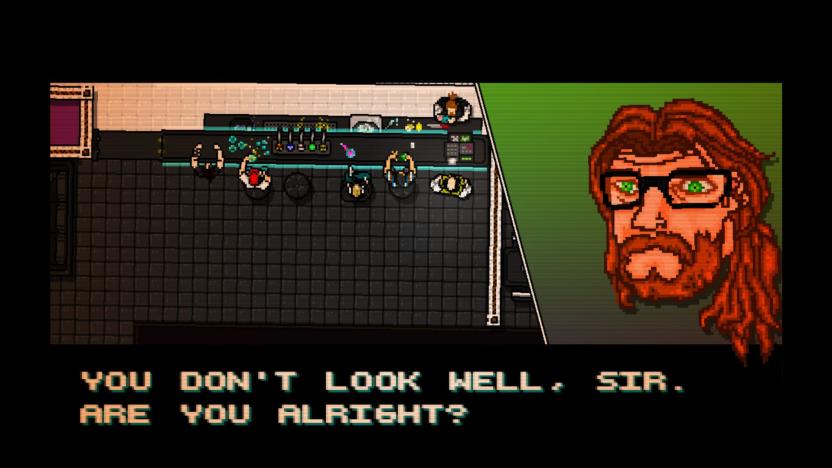
It's time to talk about mental illness in indie development
This is normal. Heart pounding, hands shaking, head packed with static. The absolute inability to process what anyone is saying, let alone respond to it. Sitting alone at home -- lights off because you've been inside all day and the sun set hours ago, but your legs have been glued to the chair for just as long -- computer screen glowing. Wanting to be outside but unable to deal with the idea of people, conversation, smiling, pretending. Feeling worthless. This is normal.

‘The Agoraphobic Traveller’ confronts anxiety with Google Street View
Flying is Jacqui Kenny's worst fear. Two months ago, the London-based New Zealander learned she would have to travel to New York for the first exhibition of her photography. She hadn't traveled to the city in a decade, and the mental preparation began immediately. She visualized every step of the journey: Boarding at the gate, hearing the plane engine rumble, watching passengers stuff luggage into overhead lockers, the taxi, the takeoff. "If I don't visualize the next step, it feels too surreal," she said. "I feel like it's not really happening, and that is anxiety inducing." Kenny has agoraphobia, an anxiety disorder that, for her, means an irrational fear of busy, public areas and distance from safe spaces. A condition affecting 1.8 million Americans, it leads Kenny to fear losing control, which can spiral into imagining worst-case scenarios. "On a really bad day, even walking to the back aisles of my local supermarket is really difficult," she said. "I think I'm going to have a full-blown panic attack and fall over and shelves are going to go falling. I might hurt somebody; I'll embarrass myself."

Scientists identify neurons that help you process emotions
Scientists just got one step closer to understanding the nuts and bolts of how your mind handles emotions. An MIT team has identified two neural connections in the brain's amygdala regions that process positive and negative emotional events. By tagging neuron groups with a light-sensitive protein, they discovered that the neurons form parallel but complex channels that respond differently to given situations. Some neurons within one of those connections will be excited by a feeling, while others will be inhibited -- the combination of those reactions in a given channel may determine the emotion you experience.
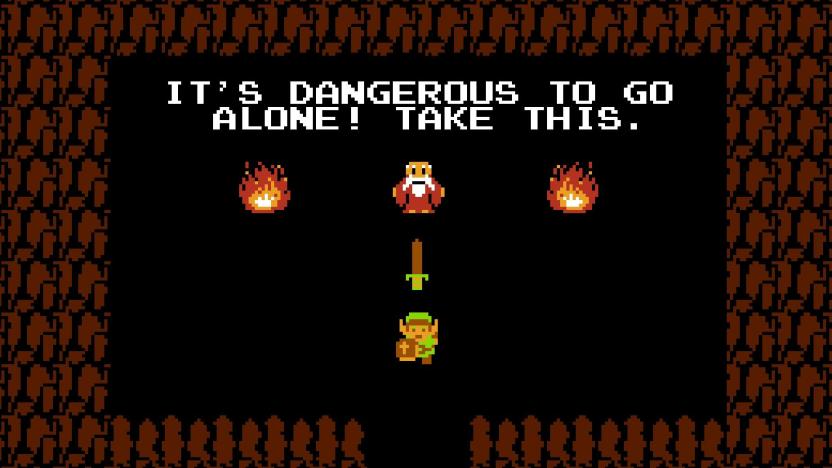
Fighting depression in the video game world, one AFK at a time
Matt Hughes took his own life in the fall of 2012. He was a freelance reporter covering the video game industry, and before he committed suicide, he sent emails to some of his editors, noting that he wouldn't be able to turn in more stories for one simple reason: He'd be dead. His suicide surprised nearly everyone who worked with him. Speaking with Kotaku days after Hughes' death, his former editors said things like There weren't any red flags and This was a complete shock. Hughes wasn't the only person in the video game industry to take his own life that year, and as the tragedies piled up, it became impossible to ignore their commonalities. Complete surprise. No one knew. She seemed fine. For Russ Pitts and Susan Arendt, two editors who had worked with Hughes and regularly interacted with dozens of other freelance reporters, these suicides were more than a shock. They were a wakeup call.

'Take This' livestream starts today with video game stars, swag
Take This is a non-profit that educates and supports those with depression, anxiety and other mental health issues, with a focus on the video game community. Starting today at 12PM ET, Take This hits Twitch for a two-day livestream starring BioShock creator Ken Levine, popular gaming critic Jim Sterling, Tom Clancy's son and game developer Thom Clancy, and other famous figures of the industry. Donate during the stream for a chance to win sweet gaming swag, including a signed Octodad poster, an IGN gift pack, a remote-controlled replica of Claptrap from Borderlands or a custom Fallout 4 Xbox One.

DEA approves MDMA study for the terminally ill
MDMA is widely used both on and off festival grounds. But the drug is quietly making a comeback as a therapeutic aid. Last week, the DEA approved a clinical trial that will use a combination of the psychedelic drug and psychotherapy to treat anxiety associated with terminal illnesses. Multidisciplinary Association for Psychedelic Studies (MAPS) has initiated the study as part of their on-going efforts to validate the effectiveness of MDMA in a scientific setting. This isn't the first time it's been used to assist psychotherapy. But if the study is successful, it will introduce a new use for the drug.
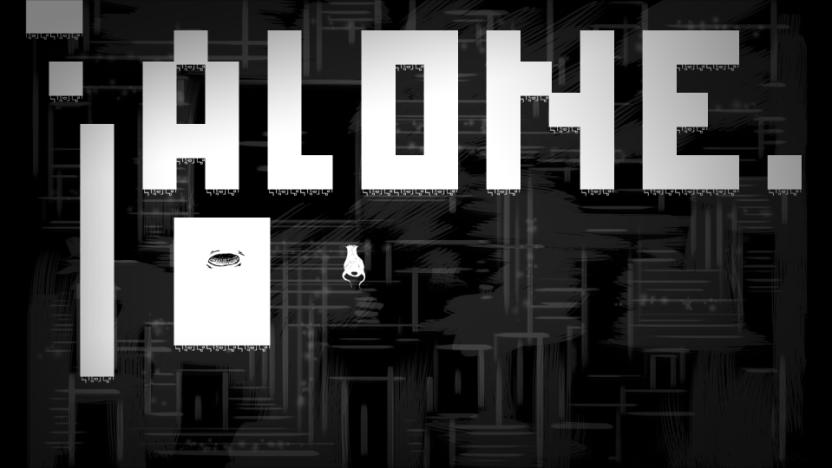
A video game for the socially anxious
Italian developers Sebastiano Morando and Francesco Lanciai didn't set out to make a game about social anxiety disorder when they created Sym. That idea spawned from the drawing of a character, a black figure with one eye disintegrating into a stark white background. Morando was inspired by this image, picturing pieces of the character as separate personalities fighting for control; a grotesque analogy for a teenager coming of age. "I was never diagnosed with social anxiety disorder," Morando says. "But in high school, I was really shy and talking with other teens was so difficult for me. When I discovered the existence of social anxiety disorder, the intense fear of social interaction, I wanted to delve deeper into it."

Do you suffer from iPhone separation anxiety?
Now there's proof -- not being able to be near your iPhone or answer it because you're otherwise engaged causes a measurable increase in anxiety as well as decreased cognition. A study published yesterday in the Journal of Computer-Mediated Communication titled "The Extended iSelf: The Impact of iPhone Separation on Cognition, Emotion, and Physiology" shows that "negative psychological and physiological outcomes are associated with iPhone separation and the inability to answer one's ringing iPhone during cognitive tasks". The study, by Russell B. Clayton, Glenn Leshner and Anthony Almond, showed that: The data tell an interesting and unique story about how iPhone separation and the inability to answer one's iPhone during cognitive tasks affects a variety of psychological outcomes. The data showed that the inability to answer one's iPhone while it was ringing activated the aversive motivational system (increases in heart rate and unpleasantness), and also led to a decline in cognitive performance. In addition, physiological levels of anxiety (blood pressure) increased in response to iPhone separation (i.e., acute stressor, Spielberger, 1979). It is interesting to note that self-reported feelings of unpleasantness and anxiety reflected participants' physiological responses such that perceived levels of unpleasantness and anxiety were greatest during iPhone separation. In contrast, when participants completed word-search puzzles with their iPhone in their possession, heart rate and blood pressure levels returned to baseline and cognitive performance increased. The team studied the effects of iPhone separation on a sample of 40 users by having them try to solve word search puzzles while separated from their iPhones or unable to answer a ringing iPhone. The study findings show that cellphone users are capable of perceiving their iPhone as an object of their extended self, which can be negatively impacted (i.e., lessening of self) during separation. I know that neither my wife nor I can leave our house without iPhones in hand, and that we've often had to drive back to our home to pick up an iPhone if we've inadvertently left it behind. How about you, TUAW readers? Does not having your iPhone around or not being able to answer it cause you distress? Let us know in the comments.

Log anxiety attacks, take control of them with Worry Watch
Worry Watch is an app that acts as a journal for tracking moments of worry, anxiety or panic. You log moments throughout your day when you're feeling anxious or nervous and what the outcome eventually was. Overtime, the app shows you a break-down of all your moments of anxiety to help you better understand and perhaps cope with these issues as well as whether they were even worth worrying about or not. It's available for iPhone and iPad for US$1.99. As someone who suffers with anxiety, I was eager to test this app out to see its features and if it overall really works by helping me to see what I struggle with at a glance. Worry Watch's home screen is blank until you hit that Plus icon on the top right to add a new event. Here you type in a title, choose a date and optionally add a reminder and notes. That's where the similarities to a regular calendar or journaling app end. There's two additional fields in Worry Watch for Context and the outcome of the situation, which become very important to the app and hopefully down the line, your health. If you tap "Context," you have six categories to choose from: Career, Family, Finance, Health, Other and Social. You choose based on which aspect of life is affecting this particular moment of anxiety. The app allows for complete customization of these as well in the Settings. I decided to change the "Other" context to "Unknown" for the occasional bursts of anxiety or panic some people may experience that seem to have absolutely no reason or purpose. Along the bottom are three additional views: Filter, Data and Settings. The filter displays your entire list of logged anxieties on the home page the way you want them organized: by outcome, context, date or day. The Data page provides charts for outcome, context or date to help you determine how often your anxiety might not have been necessary based on outcome or perhaps in what contexts you seem to develop fear the most. Self-awareness is key to overcoming anxiety. I've only been using Worry Watch for a short period of time and I can already tell from experience that down the line it's going to be extremely useful. I logged a few issues over the past few days and seeing the outcome pie chart essentially inform me that my worries were all unwarranted is gratifying. Tools like these are essential for controlling yourself in the future and not letting anxiety get the best of you. Settings features the ability to set a passcode and restrict access to your journal, customize contexts as previously mentioned, set the default outcome and a few other options to suit your tastes. I highly recommend that anyone with an anxiety disorder, panic disorder or even just those who find themselves worrying more often than they should give Worry Watch a go. The benefits it brings for self-awareness and a better understanding of your issues are immensely useful and reassuring. Get Worry Watch in the App Store for $1.99.

Elder Scrolls Online inviting 'millions' for stress test while fretting over sub model
This looks to be a big weekend for The Elder Scrolls Online's beta program, as ZeniMax is "inviting millions" for a scale test. ESO invitees will also receive an extra code for a friend and an exclusive monkey vanity pet for launch. The studio noted that the NDA will not be in effect for this weekend's test, meaning that any public discussion, screenshots, or videos are fair game. In a conversation with CVG, Bethesda VP of PR Pete Hines said that there is some anxiety in the company over the subscription model not taking hold for ESO but hopes that players will find the value of the game worth the monthly payment. "We feel like this approach is going to give people who want to play the best value, and reason to look forward to the next new thing that's coming out," Hines explained. "The Elder Scrolls is our crown jewel and it's the series that made everything we do possible, so it's a big triple-A title that demands huge, ongoing triple-A support."

The Drama Mamas guide to getting your groove back
Losing your confidence stinks. Still, in a game like WoW where your character must work cooperatively with so many others, there are times the issue is to be expected. Most players feel a bit apprehensive when getting back into content they haven't played with in a while. You feel rusty, and you're anxious about making an obvious gaffe and letting down the group, embarrassing yourself, or provoking some jerk into whining about your performance in chat. The advent of proving grounds makes simple business of knocking the rust off. Just head into your own private scenario and experiment, fiddle, and wipe to your heart's content. Nobody has to see how many times you've flopped but you. But what if the problem's not you? What if you've simply been shaken by too many encounters with trollish players who tear others down in order to build themselves up? What if you find yourself trapped in the ugly atmosphere that makes grouping a hellish prospect for anyone who's been dragged through the dirt one too many times?

Guild helps anxiety-ridden players get by with a little help from their friends
We've all sweated through those teeth-grinding firsts: that moment when you step into your first guild raid or zone into your first Arena or even first click into the Dungeon Finder without the moral support of your best buddy. Sometimes WoW can seem like an intimidating, unfriendly place. But for players with social anxiety, those feelings persist, blocking them from the ever-expanding range of activities the game offers. Some tremulous players, however, have found a way around this roadblock: a guild designed especially for players with social anxiety. ... To be quite honest, I had doubted the idea of a guild created for the socially anxious or shy. I expected everyone to be quiet and to stick to themselves or to be divided into tight, unapproachable cliques. I am pleased to know that I was incorrect in my assumptions. After my application was accepted, I was invited into the guild and welcomed warmly. No one asked about my spec, gear level, age, gender or location and I doubt they ever will. At the same time, any questions I had the courage to ask in guild chat were answered in a polite and constructive manner. In the brief time that I have been a member thus far, I have seen every request for help answered (even if it was a polite decline), and the kind of generosity and friendly interaction one should expect from a guild. I have not felt the isolation and awkwardness associated with being the "new guy." There are also guild events on many different nights of the week, so everyone has a chance to do something regardless of scheduling. ... With that said, if you are considering Swords, give it a try. There's no pressure even if it's not for you. You never know unless you try. -- Kuro / Anatole

Raid Rx: How to stop worrying about healing
Every week, Raid Rx will help you quarterback your healers to victory! Your host is Matt Low, the grand poohbah of World of Matticus and a founder of Plus Heal, a discussion community for healers of all experience levels and interests. Catch his weekly podcast on healing, raiding and leading, the Matticast. Annnd the BlizzCon hangover continues. I think we should have two BlizzCons a year. Perhaps one out in the east (or maybe a separate one in Europe)? I think it'd be neat! But alas, I'm digressing. This week in how to maintain your healing sanity, I wanted to discuss a problem that most healers have experienced at some point in their healing careers. Ever go to bed sweating stressing about your healing? Felt particularly bad about your performance because you just kept dropping the ball? Have that sinking feeling in your stomach after a particularly bad night? If this happens to you consistently, then you just might be suffering from worry!

Defeating the anxiety of running your first instance
One of my favorite WoW blogs, HoTs and DoTs, has a great post up about Dungeon Groups 101 -- the very basics of running instances. You may think that there's nothing more basic to the game than getting in an instance with four people and taking down a few bosses and trash, but you'd be surprised. Even in a social game like this, one of the first hurdles newbies have to deal with is joining a group to play together. They worry that they'll do things wrong and that other people will make fun of what they're wearing or playing, and that worry keeps them from enjoying my absolute favorite part of the game. Cassandri's writeup is an excellent read for anyone who feels that way (and feel free to pass on this post to any friends or relatives you know who've been too leery to join an instance yet). She does do some basic knowledge stuff in there, just hints on the classes and what they can all do -- and our WoW Rookie posts will help out with that stuff too -- but more importantly, she says what lots of new players need to hear: that messing up in an instance isn't that big a deal, and that playing together with others (which is the reason why we're all playing an MMO rather than a single player game in the first place) is more than worth getting past any anxiety around joining a group. I've read a lot of comments like the one Cassandri quotes in her post, too, and I'm here to tell you: if you haven't run an instance yet, it's time to stop worrying about what it'll be like and give it a try.

Study: Playing in a guild actually lowers stress
A new study done by researchers at Australia's Queensland University of Technology says that spending time online playing World of Warcraft with others can actually be good for your mental wellbeing -- within moderation of course. Researcher Huon Longman studied WoW players who played alongside guildies in game, and found that players often shared their real-life concerns with their virtual associates, which resulted in lowered levels of "anxiety, depression, and stress." In short, it seems that when you build relationships and share emotions even with people online, it can help you deal with problems in real life as well. That follows what we talked about earlier this week with Dr. Hilarie Cash -- games like WoW can definitely complement real-life relationships and actually help you relax.But only when used in moderation -- Longman also found that 10% of the sample he studied played considerably more World of Warcraft than normal, and that those players not only didn't experience a bigger benefit to their wellbeing, but actually experienced more "negative psychological symptoms." A good balance of virtual and real life can have a lot of benefits, but falling too much into virtual life can actually cause more problems psychologically, according to this researcher's work. Obviously, this is one study of many about how playing these games can affect how we think, but the results are definitely reflected in experience: in-game relationships, used in moderation, can definitely help you deal with the real world in a healthier way.Thanks to everyone who sent this in!

15 Minutes of Fame: Tanking with a panic button
15 Minutes of Fame is our look at World of Warcraft players of all shapes and sizes – from the renowned to the relatively anonymous, the remarkable to the player next door. Tip us off to players you'd like to hear more about.It's always fun to indulge in WoW talk with fellow players, but our favorite interviews for 15 Minutes of Fame happen with people for whom WoW opens doors – whether as fun and frothy as indulging another hobby by crafting a replica of Booty Bay entirely out of Legos or as meaningful as being able to game in a non-threatening, non-judgmental atmosphere among like-minded friends. This week's featured player exemplifies the power of WoW to energize and empower people's lives. MMOs can make wonderful outlets for disabled players, who find online camaraderie and 24-hour access amenable to their unique needs. Kalzedhan Hurenfal of Feathermoon-A US not only games "around" his limitations but in fact focuses his crosshairs dead on them: he's a tank with a diagnosed panic disorder.Kalzedhan suffers from a handful of debilitating mental disorders that keep him socially paralyzed, homebound and unable to function in a productive work environment. Yet through WoW, Kalzedhan not only has been able to re-engage in relationships and personal achievements – he does it in the hotseat as a tanking Warrior.









